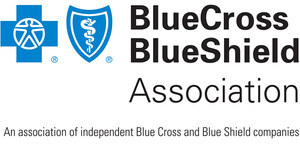CHICAGO, June 17, 2020 /PRNewswire/ -- New findings from the Blue Cross Blue Shield Association (BCBSA) found that both pregnancy and childbirth complications increased 16.4% and 14.2% respectively, with women who experience pregnancy complications becoming twice as likely to have childbirth complications as well. The findings come from a new BCBSA report, "Trends in pregnancy and childbirth complications in the U.S.," part of the Blue Cross Blue Shield, The Health of America Report® series, which examined 1.8 million pregnancies between 2014 and 2018 among commercially insured women ages 18-44.
Millennial women make up 85% of all pregnancies in the U.S. According to The Health of Millennials report, this age group has experienced a double-digit increase in eight of the 10 top health conditions like major depression, hypertension and type II diabetes, which may lead to higher risks of pregnancy and childbirth complications as well. Since 2014, pregnant women aged 18-44 have seen a:
- 35% increase in major depression
- 31% increase in hypertension
- 28% increase in Type II diabetes
To help expecting and current mothers access quality and affordable care, individual BCBS companies continue to support programs and community-focused initiatives that help improve the health of America. Examples include:
- Embedding health coaches and nutritionists in OBGYN offices to help women manage chronic diseases and lead healthier lives
- Providing resources for pediatricians to screen new mothers for postpartum depression so they can quickly get the treatment they need
- Offering expectant mothers with high-risk pregnancies confidential nursing support specific to their individual needs
The COVID-19 pandemic has also had a direct impact on pregnant women, with one in four women missing a prenatal visit and 53% reporting that they could not have a loved one in the delivery room with them; 15% delivered their baby at home. The increase in virtual care options also led to 48% of pregnant women shifting their prenatal appointments to virtual visits. After childbirth, mothers also saw a nearly 30% increase in postpartum depression diagnoses, with the diagnoses being most prevalent in women aged 18-24.
"Protecting the health and wellbeing of expecting and current mothers remains of paramount importance to the generational health of America moving forward, especially during these uncertain times," said Dr. Vincent Nelson, vice president of medical affairs for BCBSA. "Whether it is through expanded virtual services or new resources to see a doctor in-person, BCBS companies are committed to helping mothers get the care they need, no matter the setting or circumstance."
For expecting mothers seeking information on the quality of care, Blue Distinction Centers (BDC) and Blue Distinction Centers+ (BDC+) for Maternity Care are healthcare facilities available across the country that meet quality selection criteria and in the case of BDC+, cost of care criteria as well. These Centers demonstrate better overall patient satisfaction and a lower percentage of early elective deliveries. In 2018, BDC/BDC+ facilities across the country cared for more than 40% of Blue Cross and Blue Shield commercially insured women giving birth. More information on Blue Distinction Centers for Maternity Care can be found here.
This is the 31st study of the Blue Cross Blue Shield, The Health of America Report® series, which uses an integrated dataset combining the pregnancy episodes data curated from BCBS Axis Data and the BCBS Health Index. In April 2020, BCBSA also surveyed >1,000 of commercially insured women 18-44 who were pregnant or delivered in March or April to understand the impact COVID-19 has had on their mental health, prenatal care, postnatal care and delivery plans. For more information, visit https://www.bcbs.com/the-health-of-america.
SOURCE Blue Cross Blue Shield Association

Related Links
WANT YOUR COMPANY'S NEWS FEATURED ON PRNEWSWIRE.COM?
Newsrooms &
Influencers
Digital Media
Outlets
Journalists
Opted In





Share this article